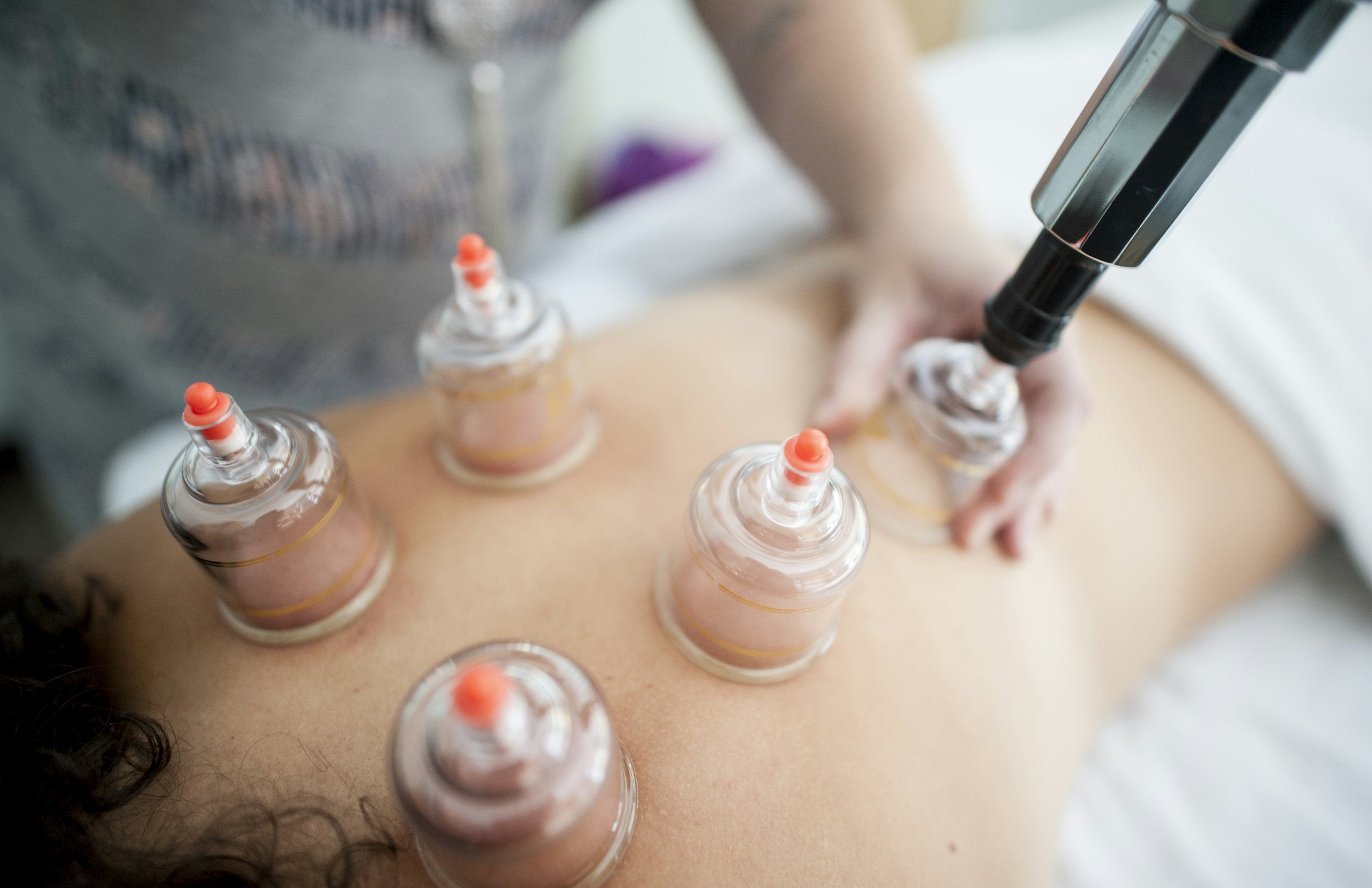
Finding Balance During Cancer Treatment
Chemotherapy can bring challenging side effects, but acupuncture offers a natural approach to finding relief. From nausea and fatigue to pain and emotional distress, learn how acupuncture can support you during cancer treatment.

Is Acupuncture working for you?
How long do the effects of acupuncture last? The answer depends on several factors, from the condition being treated to individual constitution. Learn what influences the duration of acupuncture's benefits and how to maximize their impact.

Escape the Sleepless Cycle: How Acupuncture Can Guide You to Dreamland Tonight
Are you a seasoned veteran of midnight ceiling-staring? If restful sleep feels like a distant dream, you're not alone. But what if there was a natural, gentle way to reclaim those precious hours? Enter acupuncture. It's not magic, but a sophisticated interplay of physiological mechanisms. Imagine your nervous system as a finely tuned instrument; when stressed, it's overstimulated. Acupuncture acts like a conductor, guiding it back to harmony. By stimulating specific points, it activates your 'rest and digest' response, while taming the 'cortisol beast'—the stress hormone that disrupts sleep. These strategic needle placements, corresponding to energy pathways in Traditional Chinese Medicine, aren't random. They aim to restore balance, often leading to immediate relaxation and even drowsiness. Combine this with a consistent wind-down routine—think warm baths and herbal tea—and you're on your way to a peaceful night. If sleepless nights dictate your life, your journey to dreamland might just begin with a single acupuncture appointment.

Acupuncture for Stress: Beyond the Surface of Relaxation
Feeling frazzled? Acupuncture goes beyond surface calm. It activates your 'rest and digest' nervous system, lowering stress hormones like cortisol. Needles stimulate nerves, impacting brain chemistry and releasing tension. Think endorphins, serotonin, and a physical unwinding. Many report a 'reset' feeling, a deeper calm than a spa day. It's about rewiring your body's stress response, not just temporary relief. Combine with breathing or mindfulness for amplified benefits. Ready to trade tension for lasting calm?

Revitalize Your Spine: The Power of Acupuncture
Acupuncture can help manage pain and slow down disc degeneration by releasing endorphins, improving blood circulation, reducing inflammation, and relaxing muscles. It's a natural approach that can be combined with traditional medical treatments for effective pain relief and improved quality of life.

Acupuncture and Neuropathy: A Powerful Combination
Acupuncture can help manage neuropathy by regulating neurotransmitters, improving blood circulation, reducing inflammation, and modulating the nervous system. It can alleviate pain, improve nerve function, and enhance quality of life for individuals with neuropathy.

Acupuncture: A Natural Remedy for Digestive Health
Acupuncture can improve digestion by regulating the digestive system, reducing inflammation, relieving pain, and balancing appetite. It can help with specific issues like constipation, diarrhea, IBS, and indigestion. Consult a qualified acupuncturist to determine if it's right for you.

Acupuncture: An Ally in Managing Alzheimer's Symptoms
Acupuncture can help manage Alzheimer's symptoms like cognitive decline, anxiety, sleep disturbances, pain, and mood disorders. It works by stimulating the body's natural healing processes and balancing neurotransmitters. While not a cure, acupuncture can improve quality of life for Alzheimer's patients when used alongside conventional treatments.

Acupuncture: A Scientific Approach to Better Sleep
Acupuncture, an ancient practice, can improve sleep quality. It regulates neurotransmitters like serotonin and melatonin, reduces stress, and alleviates pain. By balancing hormones and addressing specific sleep disorders like insomnia and restless leg syndrome, acupuncture can promote restful sleep. Consult a qualified acupuncturist to determine if it's right for you.

Acupuncture: A Needle in the Right Place
Acupuncture stimulates nerves, triggering the release of neurotransmitters like endorphins, serotonin, and dopamine, which can help alleviate pain, improve mood, and reduce stress.

Cracking and Popping: A Chinese Medicine Perspective
Joint cracking in Chinese medicine is often attributed to imbalances in Qi, or vital energy. It can also be a sign of improved Qi circulation or underlying joint issues.

Emotional Release During Acupuncture: A Powerful Healing Tool
Acupuncture can trigger emotional releases. By stimulating specific points on the body, acupuncture influences the release of neurotransmitters that regulate mood and emotions. This can lead to emotional healing, stress reduction, improved mood, and self-discovery. If you're considering acupuncture, be open to emotional releases and create a safe environment for your session.

Understanding How Acupuncture Can Help with Fibromyalgia
Acupuncture can help alleviate fibromyalgia symptoms like pain, sleep disturbances, and stress. It promotes relaxation, improves circulation, and offers personalized treatment. While not a cure, acupuncture can significantly enhance quality of life for those with fibromyalgia.

Acupuncture and Neurological Disorders: A Promising Approach
Acupuncture can offer relief for neurological conditions like Parkinson's, MS, and migraines. It helps with pain, improves mobility, reduces spasticity, and enhances neurotransmitter balance. Acupuncture also promotes relaxation and offers personalized treatment, making it a valuable complementary therapy for those with neurological disorders.

Gua Sha: A Holistic Approach to Healing
Gua Sha, an ancient Chinese practice, offers various health benefits. By improving blood flow, reducing inflammation, and stimulating acupressure points, Gua Sha can alleviate pain, promote healing, and enhance overall well-being.

The Role of Acupuncture in Sports Therapy
Acupuncture for Athletes
Acupuncture can benefit athletes by:
Reducing pain
Accelerating recovery
Relaxing muscles
Enhancing performance
Preventing injuries
Reducing stress
Acupuncture is a valuable tool for athletes seeking holistic health and performance optimization.

Nourishing Your Way to Recovery: Foods to Avoid When Sick
When you’re sick, what you eat matters. Avoid cold, raw, dairy, spicy, greasy, and sugary foods. Instead, opt for warm soups, steamed vegetables, herbal teas, and whole grains to support your body's healing process.

Auricular Therapy: A Needle-Free Approach to Healing
Auricular therapy offers a needle-free alternative to traditional acupuncture. By stimulating specific points on the ear, this gentle practice can alleviate pain, reduce stress, improve sleep, and support digestive health.

Cupping: An Ancient Practice for Modern Wellness
Cupping is an ancient Chinese healing technique that involves placing cups on the skin to create suction. This practice can improve blood flow, reduce pain, and promote relaxation. There are two main types of cupping: dry and moving. Cupping can help with pain relief, stress reduction, and immune support. When performed by a qualified practitioner, cupping is generally safe. If you're interested in trying cupping, consult with Dr. Amanda The Acupuncture Point (TAP) South Bay.

The Power of the First Bite: Nutrition according to Chinese Medicine
A balanced diet is key to good health. Acupuncture can complement a healthy diet by improving digestion, balancing energy, and reducing stress. Starting your day with a warm, savory breakfast can also boost metabolism. By combining acupuncture and good nutrition, you can optimize your overall well-being.
